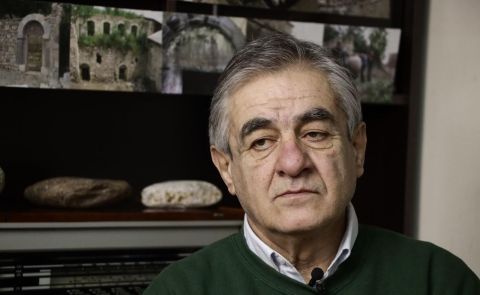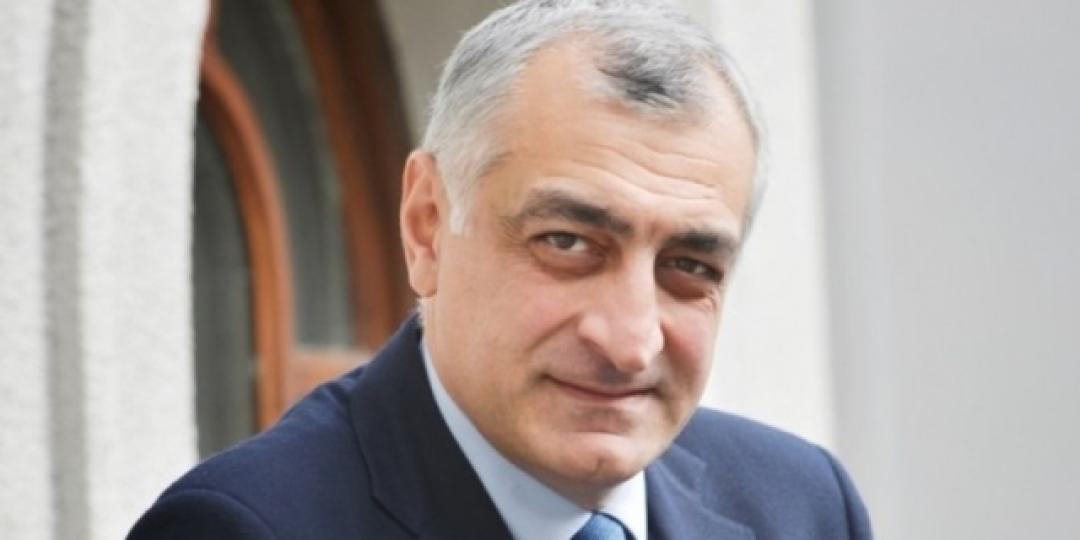
Mamuka Khazaradze: “Anaklia Becomes a Chinese Port”

The Port of Anaklia is a deep-sea port being developed on Georgia's coast. A little over a decade ago, the government of Georgia awarded a consortium led by TBC Holding (Georgia), SSA Marine (USA), Wondernet Express (UK), G-Star LtD (Bulgaria), and Conti International (USA) a 52-year concession for the development of a port in nine phases. This was to be the largest infrastructural investment project in the Black Sea, costing $2,5 billion.
The funders would have included Georgian, European, and American investors, including the European Bank for Reconstruction and Development (EBRD), the Overseas Private Investment Corporation (OPIC), the European Investment Bank (EIB), the Asian Infrastructure Investment Bank (AIIB), and the Asian Development Bank (ADB). The European Commission pledged almost a quarter of a billion dollars in soft financing, turning Anaklia into a European gateway to Eurasia.
In 2020, the Government of Georgia revoked the concession, triggering a prolonged litigation process. On May 29, 2024, Tbilisi announced it would award a new concession to an all-Chinese consortium that includes the China Communications Construction Company (CCCC), the Singapore-based China Harbour Investment, the China Road and Bridge Corporation, and Qingdao Port International. The US government has blacklisted CCCC due to its involvement in the militarization of the South China Sea.
In sum, Anaklia is now singularly perceived as a One Belt, One Road project. This is not unprecedented. Chinese companies control the majority of berths in Rotterdam, Piraeus, Antwerp, and a significant stake in Hamburg. However, the location of Georgia makes this a different kind of choice.
To understand the significance of this investment at this specific point in time, we turn to Mamuka Khazaradze, the co-founder of Georgia’s TBC bank and former Chairman of the Anaklia Development Consortium (ADC). Since 2020, he leads the ‘Lelo for Georgia’ opposition party.
The Anaklia Port was designed to handle 100 million tons of cargo at full capacity. In 2018, four Georgian ports — Batumi, Poti, Kulevi, and Supsa — handled together less than 10 million tons. This volume has quadrupled in recent years, possibly due to the war in Ukraine. Where do you think the Georgian logistics sector is going? Does constructing the Deep-Sea Port of Anaklia still make sense?
Yes, absolutely. Independent consultants have been predicting double-digit growth in the Georgian logistics sector of about 10-15% growth a year. Last year we saw the volume of goods handled surge by 95%.
It is important to note that the projection of 100,000 tons is not done in one go. The Port of Anaklia was to be divided into nine phases, with the infrastructure accommodating to demand. The fundamentals of this project remain perfectly sound.
You led a consortium for the initial development of the port, which included British and American partners. The EU offered nearly a quarter of a billion dollars in soft financing for its development. Why was the Anaklia Development Consortium unable to bring the project to fruition?
There is a simple answer to this question, which creates complications for Georgia. In effect, our government is serving the interests of Russia, which did not want a port competing with Novorossiysk.
Since the Panama Papers leak, we know that the man in control of the ruling party and the government of Georgia, Bidzina Ivanishvili, had personal business interests related to the port of Poti and had an interest in obstructing the development of Anaklia by our consortium, not least because he did not control it.
When the Georgian government effectively withdrew its support from the Anaklia Development Consortium, the project had secured $400 million in loans, soft financing, and equity capital from lenders such as the EBRD, the EIB, the AIIB, the ADB, and others. We had spent $80 million, with much of this capital spent by our American partners, as well as Dutch, Hungarian, and Uzbek investors. It goes without saying that this hurt the country's credibility vis-à-vis foreign investors.
On May 29th, a consortium of two Chinese companies were awarded the contract for the development of Anaklia. Once constructed, the state will own the majority of the port's shares. Is this going to be a Chinese or a Georgian port? Does it matter?
If it proceeds as it is, this will surely be a Chinese port. The Georgian state does not have the capital to retain a 51% share in an investment that, in its first phase of development, will require $800 million.
When we set out to build Anaklia, we had a budget of $630 million. That was almost a decade ago, and inflationary pressure has been substantial since then. Georgia does not have the capital to put up half the required capital, and this year’s budget does not put aside anything for capital investment of this size.
The Caspian Sea is evaporating due to climate change. Is the trans-Caspian route and connection to China technically viable?
I am confident it is. The Caspian Sea has a series of state-of-the-art ports on both sides of it. New vessels are also being built, and the route is being optimised. The numbers also support the case. Shipping a container vessel from Shanghai to Rotterdam takes 52 days. From Anaklia to China, it takes two weeks. Even with the cargo loaded on trucks, it is no more than 12 days. So the business case is sound.
However, Anaklia is the region's natural gateway port to the global market. The project would be viable even if it served Central Asia and the Caucasus alone, with 17 million people in the South Caucasus region and 147 million people in Kazakhstan, Uzbekistan, Turkmenistan, Kyrgyzstan, Tajikistan, and Northern Iran.
Georgia’s neighbours and natural trade partners are Turkey, Russia, and Iran. Given the suspicion of emerging trade wars and calls for “de-globalisation,” is the prospect of an East-West trade hub still relevant?
Yes, this can be a viable project. However, this government is investing solely in China. That is a mistake. The risk should be distributed to a broader base of stakeholders. The broader the investor base, the more secure the investment is. One needs to hedge political risks as much as financial risks.
Commercially, the project can be viable. However, when the country expropriates assets paid for by American and European investors, we are not only hurting this project but also undermining future investment.
You now lead a political party in Georgia. Does Georgia's concentration of political and financial capital pose a political problem?
Absolutely, both domestically and globally. At home, the peaceful street demonstrations by a large proportion of our population and the polling, which shows that Georgians are disgusted with Georgian Dream’s authoritarian ways and their unhappiness with the government’s antidemocratic actions, serve as evidence of this. And internationally, our natural allies in the EU and U.S. have shown their frustration with the direction that Georgian Dream is taking – making us hostages to Russian and Chinese self-interest.
Interview conducted by Ilya Roubanis
See Also


Irina Mamulashvili: Electoral Interference is a Playbook, not a Recipe

Giorgi Gakharia: The EU Should Engage Georgia Despite Its Democratic Backsliding

Peace or Capitulation? Shahverdyan on Armenia-Azerbaijan Agreement and the Nagorno-Karabakh Crisis

Ali Mousavi Khalkhali: Iran Will Avoid Conflict in the Caucasus

